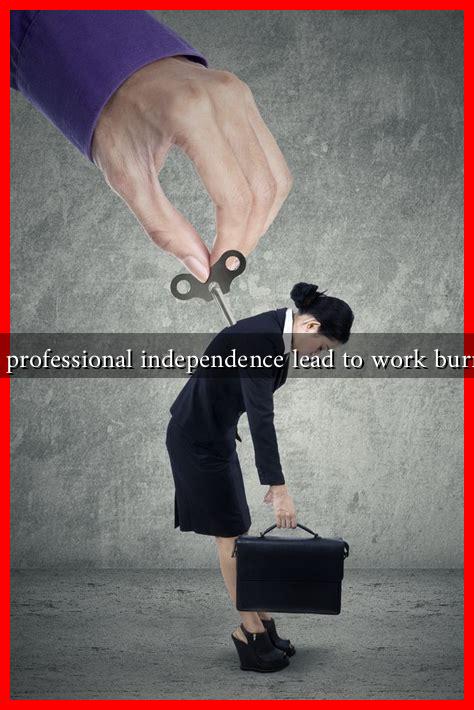-
Table of Contents
Can Professional Independence Lead to Work Burnout?
In today’s fast-paced work environment, the concept of professional independence has gained significant traction. Many individuals aspire to work autonomously, believing it will lead to greater job satisfaction and personal fulfillment. However, this independence can also come with its own set of challenges, including the risk of work burnout. This article explores the relationship between professional independence and burnout, examining the factors that contribute to this phenomenon and offering insights into how to mitigate its effects.
Understanding Professional Independence
Professional independence refers to the ability to make decisions and manage one’s work without direct oversight. This can manifest in various forms, such as freelancing, remote work, or entrepreneurship. While independence can foster creativity and innovation, it can also lead to increased pressure and responsibility.
The Dark Side of Independence: Burnout
Burnout is a state of emotional, physical, and mental exhaustion caused by prolonged stress. According to the World Health Organization (WHO), burnout is characterized by three dimensions:
- Feelings of energy depletion or exhaustion
- Increased mental distance from one’s job or feelings of negativism
- Reduced professional efficacy
While professional independence can provide flexibility and autonomy, it can also lead to burnout for several reasons:
1. Lack of Boundaries
When individuals work independently, they often struggle to establish clear boundaries between their personal and professional lives. This can result in:
- Extended work hours
- Difficulty disconnecting from work
- Increased stress levels
For example, a freelancer may find themselves working late into the night to meet client demands, leading to exhaustion and burnout.
2. Isolation and Loneliness
Professional independence can lead to feelings of isolation, as individuals may miss the social interactions that come with traditional office environments. This isolation can exacerbate feelings of stress and contribute to burnout.
3. Pressure to Perform
Independent workers often face immense pressure to succeed, as their income may depend solely on their performance. This pressure can lead to:
- Increased anxiety
- Fear of failure
- Overworking to meet client expectations
According to a study published in the Journal of Occupational Health Psychology, individuals who experience high levels of job demands and low levels of control are at a greater risk of burnout.
Case Studies: Real-World Examples
Several case studies illustrate the connection between professional independence and burnout:
- Freelance Graphic Designer: A graphic designer who transitioned from a corporate job to freelancing found that the lack of a structured work environment led to longer hours and increased stress. After experiencing burnout, they implemented strict work hours and scheduled regular breaks to regain balance.
- Remote Software Developer: A remote developer reported feeling isolated and overwhelmed by the demands of multiple projects. By joining a virtual coworking space, they found community support and accountability, which helped reduce feelings of loneliness and stress.
Strategies to Prevent Burnout
While professional independence can lead to burnout, there are effective strategies to mitigate its effects:
- Set Clear Boundaries: Establish specific work hours and stick to them to maintain a healthy work-life balance.
- Prioritize Self-Care: Engage in regular physical activity, mindfulness practices, and hobbies to recharge.
- Seek Support: Connect with peers or join professional networks to combat feelings of isolation.
- Regularly Assess Workload: Periodically evaluate your workload and adjust commitments to prevent overwhelm.
Conclusion
Professional independence offers numerous benefits, including flexibility and autonomy. However, it also presents unique challenges that can lead to work burnout. By understanding the factors contributing to burnout and implementing effective strategies, independent workers can enjoy the advantages of their professional freedom while safeguarding their mental and emotional well-being. Ultimately, achieving a balance between independence and self-care is crucial for long-term success and satisfaction in one’s career.
For more insights on managing work-related stress and preventing burnout, consider visiting the American Psychological Association.


